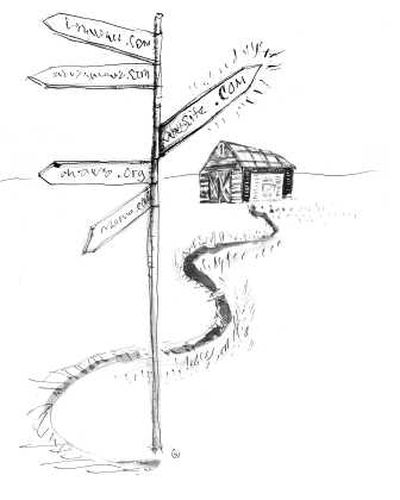How to improve your search position

The main goal of good SEO (search engine optimization) is finding a way to get into or near the top 10 results in the search engines. The objective is simple: If I sell golf clubs, I want my Web site to be shown as high as possible when someone searches for “golf clubs.” But getting to the first page of any major search engine is not an easy task.
A clean and professional design is the first step toward ranking well. However, you can have the most amazing, jaw-dropping, dynamic Web site and achieve nothing if the engines do not visit your site, add you to the search engine index and assign your site a high “relevance” score.
There is a long and heated dispute among Internet professionals over how to rank well. In reality, the arguments are part guesswork, as the major search engines don’t reveal the always-changing formulas they use to assign ranking to the results of their search indexes.
But there is a good and solid foundation in what a site builder can do. The more relevant your site is, the higher your Web site will show up in the search results. We also know that relevance is not the only factor the search engines use. They also look at how often other sites link or “point to” your own site as a useful destination.
When looking at relevance, search engines use a keyword system to determine what a Web page is about. If your page is about “handcrocheted quilts,” then the search engine will notice keywords such as “handcrocheted,” “quilt” and “handcrocheted quilt” within the HTML code (that may or may not be visible in the plain text of the page a visitor sees).
Most Web professionals agree that keywords should be added to the title of the site’s main page and in the description of the site, as well as be found on the page and in the actual URL form of the site. There is also agreement regarding how many times you should use a keyword within the page. The notion of keyword density is considered a big factor in high search ranking.
SEO pros agree the main keyword should count for 3 to 5 percent of total word count on a page. In a 500-word page, the keyword should appear no less than 15 times and no more than 25 (including title, keywords, description and links). Visit http://tools.seobook.com/general/ keyword-density/ to check the density of your site.
Relevance is also important when search engines search a site and classify it. Sites that try to stuff bogus or extra tags, in an attempt to game the rankings, are eventually discounted or disregarded by the search engine algorithms.
As a result, the best approach is to write your pages to convey good information to human readers.
Search engines also look at how well your page is linked. Links pointing to your site are a vote of confidence. In essence, a link is one Webmaster telling her visitors to go check out your site because your information is good and relevant.
It is important to note that not all links are the same. A link from a “seasoned” Web site that is an authority on a subject is much more valuable than a new site or even a directory. To determine the “weight” of a link or how seasoned a Web site is, you can check the Google PageRank for any given Web site. If you have the Google toolbar installed, you can set it up so it displays every Web site PageRank. If not, you can visit www.prchecker.info/.
PageRank is calculated from 0 to 10. The higher the number, the more weight that particular Web site (and links therein) will carry. Yahoo has a PageRank of 9. A site with a PageRank of 2 is a very good start. A site with a PageRank of 4 or above can really help your rankings in the search index.
A good way to get these high PageRank links, without violating any of the search engines terms and conditions, is to submit articles that link back to your Web site. I use www.ezinearticles.com often. That user-created review site requires articles be relevant and well written. In exchange, the site generates helpful links back to a site you’re trying to promote.
There is disagreement over whether the links you put on your site can help you, but it is well settled that you should not link to sites that do not relate to yours or that have anything to do with adult sites, gambling or spam.
Remember, a good design can help you attract visitors, but having a well-written, highly relevant and well-linked page with all the little tips outlined above can help you rank well and stay on the top of search engines.